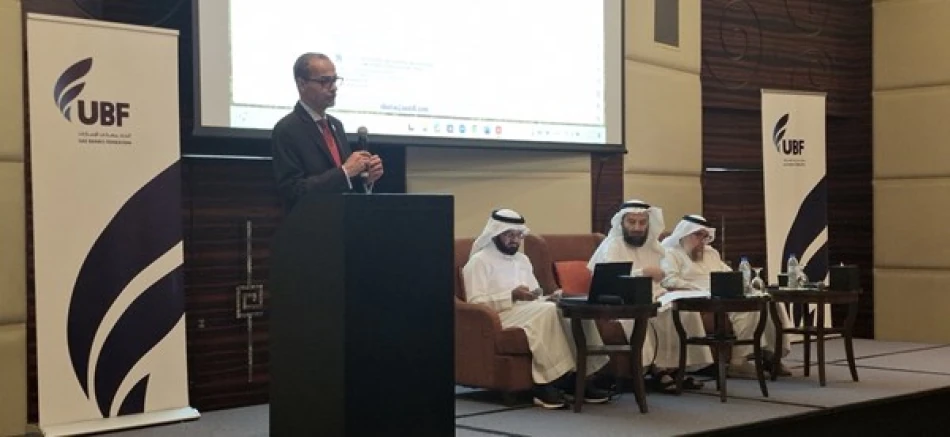
UAE Banks Unite to Enhance 'Ijara Al-A'yan Al-Mu'ayyinah' Standard with AAOIFI Support
UAE Banking Sector Backs Global Push to Standardize Islamic Finance Lease Contracts
The Emirates Banking Association has thrown its full weight behind efforts to create unified global standards for Islamic finance, specifically endorsing new Sharia-compliant leasing guidelines that could reshape how banks structure asset-based financing across the Middle East and beyond. The move signals the UAE's determination to cement its position as the world's leading hub for Islamic banking while addressing long-standing inconsistencies that have hindered the sector's growth.
Why Standardization Matters Now
Islamic finance has experienced explosive growth over the past decade, with global assets exceeding $3.7 trillion. However, the industry has struggled with fragmented practices and varying interpretations of Sharia law across different markets. The Accounting and Auditing Organization for Islamic Financial Institutions (AAOIFI) is now developing comprehensive standards for ijara contracts—Islamic lease agreements covering vehicles, equipment, real estate, and infrastructure assets.
Jamal Saleh, Director General of the Emirates Banking Association, emphasized the critical timing: "With the rapid development of Islamic banks and financial institutions, unified standards have become vital for harmonizing practices and ensuring consistency in banking operations for individuals and financial institutions."
The UAE's Strategic Advantage
Market Leadership Position
The UAE has emerged as one of the world's fastest-growing Islamic finance markets, competing directly with Malaysia and Saudi Arabia for regional dominance. Unlike other jurisdictions that have focused primarily on sukuk (Islamic bonds), the UAE has built a comprehensive ecosystem spanning retail banking, corporate finance, and capital markets.
This standardization push aligns perfectly with the UAE Central Bank's broader strategy to enhance governance, risk management, and innovation within Islamic financial institutions. The timing is particularly strategic as global investors increasingly seek ESG-compliant investment options, where Islamic finance's ethical foundations provide a natural advantage.
Competitive Implications
By championing AAOIFI standards, UAE banks are positioning themselves to capture cross-border Islamic finance flows more effectively. Standardized lease contracts will make it easier for multinational corporations to work with Islamic banks across different countries, potentially giving UAE institutions an edge over competitors in Singapore, London, or Hong Kong who lack this specialized expertise.
What This Means for Banks and Investors
The new ijara standards will directly impact several high-growth sectors. Vehicle financing, equipment leasing, and infrastructure funding represent massive opportunities, particularly as the UAE diversifies its economy away from oil dependence. Standardized contracts should reduce legal risks, lower transaction costs, and make Islamic finance products more attractive to conventional investors.
For Islamic banks, unified standards mean reduced compliance costs and easier product development. Banks can design products once and deploy them across multiple markets, rather than customizing for each jurisdiction's interpretation of Sharia law.
For conventional investors, clearer standards make Islamic finance products more transparent and comparable to traditional financial instruments, potentially unlocking new capital sources.
Regional Context and Global Ambitions
This standardization effort comes as Gulf states compete intensively for financial sector leadership. Saudi Arabia's Vision 2030 includes ambitious plans for Islamic finance growth, while Qatar and Bahrain have their own regional hub aspirations. The UAE's proactive approach to standard-setting could prove decisive in this competition.
The focus on asset-based leasing is particularly shrewd. Unlike more complex Islamic derivatives or structured products, lease agreements are easily understood by conventional finance professionals, making them ideal vehicles for expanding Islamic finance's global reach.
The Emirates Banking Association's call for member institutions to actively participate in developing these standards suggests a coordinated industry approach rather than individual bank initiatives. This collective effort mirrors successful standardization campaigns in conventional finance and could accelerate adoption across the broader Islamic banking sector.
Most Viewed News

 Layla Al Mansoori
Layla Al Mansoori






